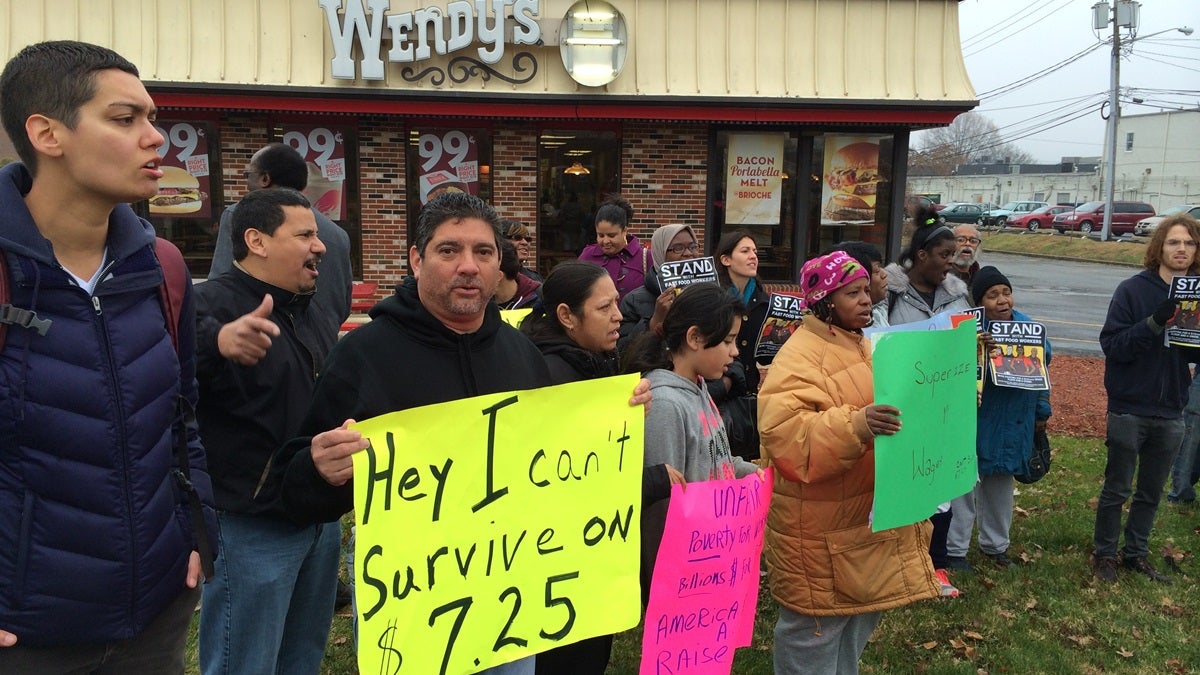Delaware’s middle class

(Shirley Min/WHYY)
Out of a workforce of about 600,000 people, about 11,000 earn minimum wage according to the Delaware State Chamber of Commerce.
And interim chamber president Rich Heffron says the majority of minimum wage earners only work in those jobs on a temporary basis.
“Most of the jobs aren’t really designed for full-time work,” Heffron said. “It’s meant to be a wage for people who are either unskilled, part-time, people who are in training trying to better their life.”
But tell that to the dozens of full-time fast food workers who have protested in Wilmington and across the country fighting for $15/hour and the right to unionize.
Delaware’s minimum wage matches the federal rate, paying $7.25/hour. However, a bill making its way through the General Assembly, if passed, would bump up the rate to $8.25/hour over two years.
“They’re not teenagers, right, most of the workers at fast food corporations are adults, a lot of them are trying to support a family,” said protest organizer Ezra Temko, who heads up the Delaware chapter of Americans for Democratic Action.
“That’s what we’re hearing from a lot of these protestors and these organizers is that $7.25, people can’t feed their family of four on that, and it’s true, but they’re not supposed to,” said Carrie Leishman, head of the Delaware Restaurant Association. Leishman says any increase would be detrimental to the restaurant industry.
Where are the jobs?
Leishman says minimum wage jobs are vital to get people working on the ladder while they figure out where they are going to go next, or how they can move up. But fast food workers say there are no jobs to move up to.
“So the issue really is where are the opportunities? And where are the jobs? Our jobs have not changed,” Leishman said, saying that’s a question for the governor and state lawmakers.
“I think we have bigger problems in this country which have caused the inequality in income and have caused the middle class to shrink because jobs have been eliminated mostly through technology,” Heffron said. “We have to train people for different jobs. We’re the most innovative society in the world… that’s where our jobs are going to come from, innovation.”
Heffron says if we can train people in these new technologies being used in the manufacturing sector, for example, they can move up from minimum wage into these “new middle class” jobs.
WHYY explores the minimum wage debate from both sides tonight on First, at 5:30 p.m. and again at 11 p.m. Next week, First looks into what these “new middle class” jobs are and the training required to qualify for them.
WHYY is your source for fact-based, in-depth journalism and information. As a nonprofit organization, we rely on financial support from readers like you. Please give today.





